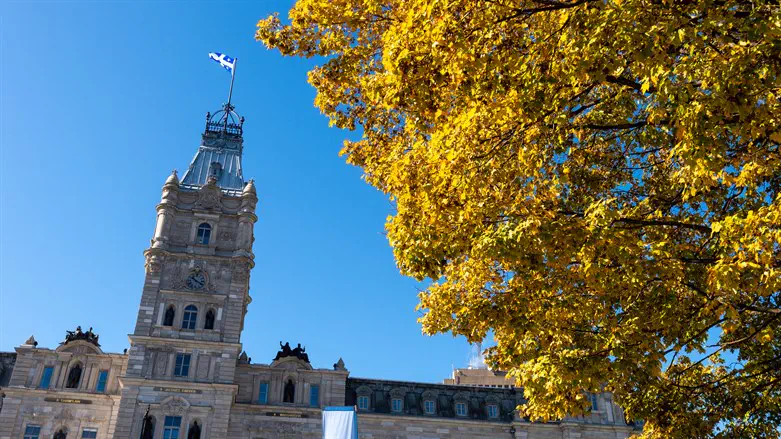
B’nai Brith Canada is asking the Quebec Government to adopt the International Holocaust Remembrance Alliance (IHRA) definition of antisemitism and amend Bill 96 to avoid placing an undue burden on rabbis seeking to work in the province, it said in a statement on Monday.
The reengagement with the Government comes as the National Assembly of Quebec convenes for the first time since last October’s provincial elections.
B’nai Brith has communicated with the governing CAQ leadership, including Premier François Legault and Christopher Skeete, Minister Responsible for the Fight Against Racism. The organization has also been in contact with Elisabeth Prass, Official Opposition Critic for the Fight Against Racism.
A past motion presented by the Parti Quebecois to adopt the IHRA definition was blocked from unanimous consent by the small Quebec Solidaire (QS) party. QS has taken an increasingly anti-Israel position, including at one time endorsing the boycott, divestment and sanctions movement.
In 2021, Minister Benoit Charette announced the Quebec Government would adopt the IHRA definition of antisemitism. Despite his claim, the Government never implemented the Order in Council.
He wrote in a letter to B’nai Brith last February: "We have carried out checks since our last exchange. To adopt a decree (IHRA definition), we would need to be able to link it to a framework law (for example on the fight against racism), which does not exist to my great surprise. We are examining what form a bill could be developed to constitute such a framework law.”
B’nai Brith is now offering to work with the Government to find a mechanism to implement the IHRA definition, including through anchor legislation, as Minister Charette suggested in his aforementioned letter.
“B’nai Brith is engaging with the Quebec Government on two essential issues concerning the Jewish community,” said Marvin Rotrand, National Director of B’nai Brith’s League for Human Rights. “There is a great deal of confusion about the issue of IHRA in the province. We are ready to work with the Government. We are also seeking to amend Bill 96 to create an exception for religious clergy, including rabbis, many of whom are based in the United States and face undue barriers.”
“B’nai Brith is committed to advocating on behalf of Quebec’s Jewish community,” said Michael Mostyn, Chief Executive Officer of B’nai Brith Canada. “Quebec is a unique jurisdiction that requires a specialized approach. We are working to ensure the Government adopts the IHRA definition and begins the process of implementation and, ultimately, entrenchment. We understand the nuances of working with the National Assembly and approach this new parliamentary session with a sense of optimism and hope.”
The IHRA working definition offers a comprehensive description of antisemitism in its various forms, including hatred and discrimination against Jews, Holocaust denial and, sometimes controversially, the way antisemitism relates to the ways criticism of Israel is expressed.
More than half the states in the US have adopted or endorsed the IHRA definition, plus the District of Columbia, either as legislation or as an educational standard.
In addition to the federal government of Canada, the IHRA definition has been adopted by the provinces of Ontario, British Columbia, Alberta, New Brunswick and Manitoba.
